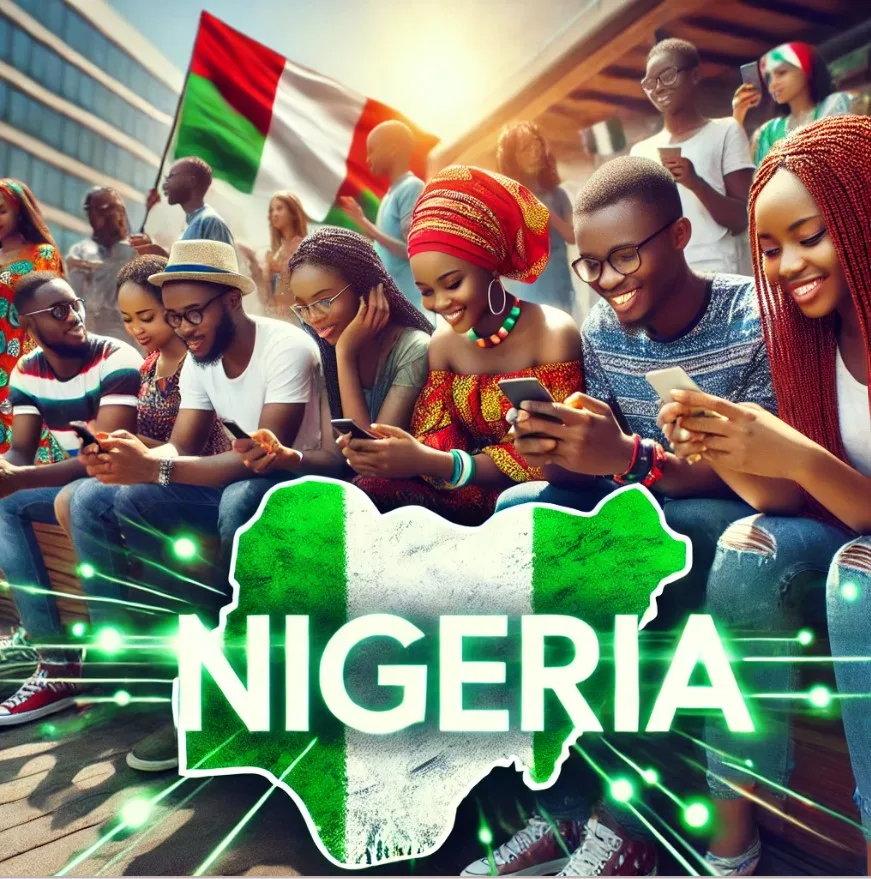Let’s talk about social media platforms in Nigeria—because if there’s one thing Nigerians love almost as much as jollof rice, it’s a good online debate. Social media in Nigeria isn’t just a place to post selfies or share memes (though we do that a lot). It’s a vibrant, chaotic, and often hilarious digital ecosystem where culture, politics, business, and entertainment collide. It’s like a bustling Lagos market, but instead of shouting “Oga, come buy your fresh fish!” it’s “Did you see what Davido just tweeted?”

The Big Players: Who’s Who in the Nigerian Social Media Scene
Nigeria’s social media landscape is dominated by the usual global giants, but with a uniquely Nigerian twist. Let’s break it down:
- Facebook: The OG. Facebook is like that wise elder in the village who’s seen it all. It’s where your aunties post Bible verses, where market women sell their goods, and where political arguments go to die (or escalate into full-blown wars). Facebook Groups are particularly huge—whether it’s a group for Nigerian moms sharing parenting tips or one for people arguing about who makes the best pepper soup.
- Twitter (X): Ah, Twitter. The land of hot takes, viral trends, and endless drama. Nigerians have turned Twitter into a national pastime. It’s where hashtags like #EndSARS started and where celebrities like Burna Boy and Wizkid feud publicly. Twitter is also the go-to platform for “calling out” culture—if you owe someone money or did something shady, you might just find yourself trending.
- Instagram: This is where Nigerians flex. From luxury cars to designer outfits to perfectly plated meals, Instagram is the stage for showcasing the “soft life.” But it’s not all glitz and glamour—Instagram is also a hub for small businesses. Want to buy handmade Ankara bags or order a custom cake? Instagram has you covered.
- TikTok: The new kid on the block, but growing fast. TikTok is where Nigerian Gen Z shines, creating dance challenges, comedy skits, and viral trends. It’s also where you’ll find the most creative (and sometimes cringey) content.
- WhatsApp: The unofficial king of Nigerian messaging apps. WhatsApp is where family group chats thrive, where you get forwarded messages about “the dangers of drinking cold water,” and where your landlord sends you rent reminders. It’s also a hub for business—everyone from tailors to farmers uses WhatsApp to connect with customers.
Why Social Media is a Big Deal in Nigeria
Social media isn’t just a tool in Nigeria—it’s a way of life. Here’s why:
- The Great Connector: With over 200 million people and hundreds of ethnic groups, Nigeria is a diverse and complex country. Social media bridges the gaps, bringing people together in ways that were impossible before. Whether you’re Igbo, Yoruba, Hausa, or from one of the many other ethnic groups, social media is where you can share your culture and connect with others.
- The Voice of the People: In a country where traditional media can sometimes be restricted, social media gives Nigerians a platform to speak out. From holding leaders accountable to mobilizing for social causes (like the #EndSARS movement), social media has become a powerful tool for activism.
- The Hustle is Real: Nigeria’s economy can be tough, and social media has become a lifeline for many. From influencers making bank through brand deals to small businesses reaching customers online, social media is a key driver of entrepreneurship.
- Entertainment Central: Nigerians are some of the most creative and entertaining people on the planet, and social media is where that creativity shines. From viral skits to music promotions to hilarious memes, social media is Nigeria’s stage.
The Dark Side: When Social Media Gets Toxic
Of course, it’s not all sunshine and roses. Social media in Nigeria has its downsides:
- Fake News: With the rise of “WhatsApp University,” misinformation spreads faster than wildfire. From false health tips to fake job offers, Nigerians have to constantly fact-check what they see online.
- Cyberbullying: The anonymity of social media can bring out the worst in people. From body-shaming to hate speech, cyberbullying is a growing problem.
- Scams: Ah, the infamous “Yahoo boys.” Social media is often used as a tool for scams, from romance scams to fake investment schemes.
The Future of Social Media in Nigeria
As internet penetration grows and more Nigerians come online, social media will only become more influential. We’re already seeing the rise of homegrown platforms like Bumpa (for small businesses) and Vibely (for community building). Who knows? Maybe the next big global social media platform will come out of Nigeria.
So, whether you’re scrolling through Twitter for the latest gist, watching TikTok skits, or selling your products on Instagram, one thing is clear: social media in Nigeria is more than just a tool—it’s a reflection of who we are. It’s our digital town square, our marketplace, our stage, and sometimes, our battlefield. And honestly, we wouldn’t have it any other way.
Now, if you’ll excuse me, I need to go check what’s trending on Twitter. #NaijaNoDeyCarryLast.